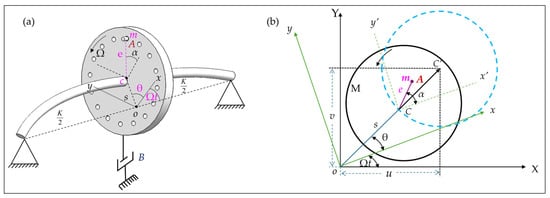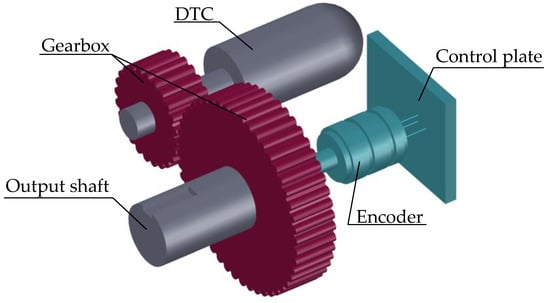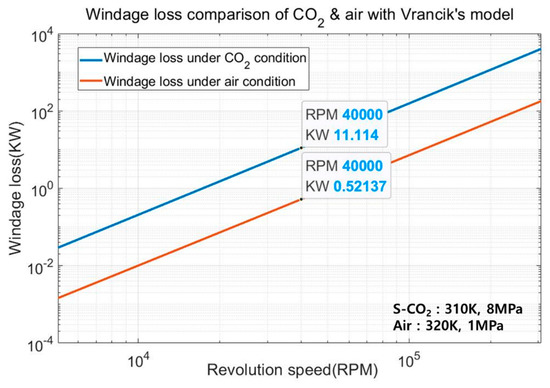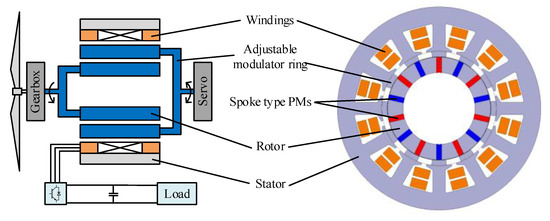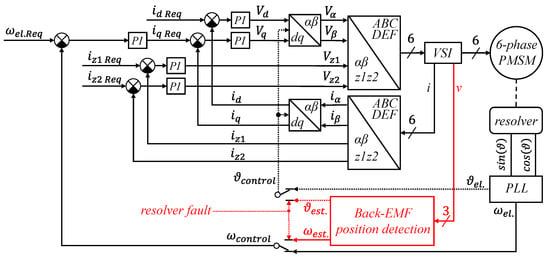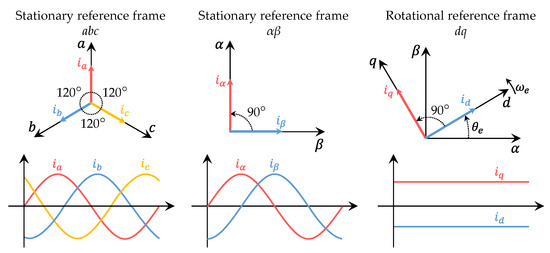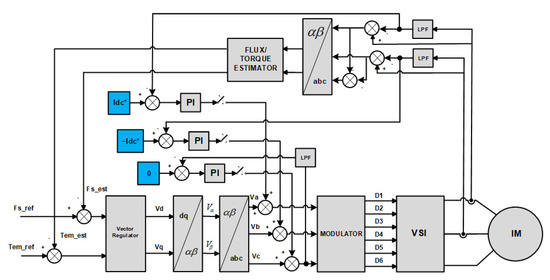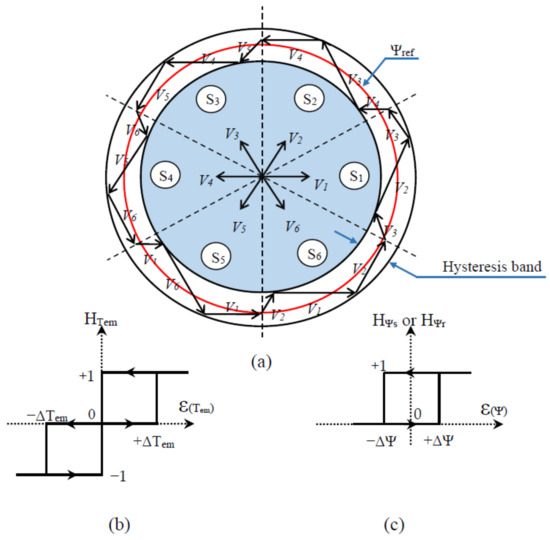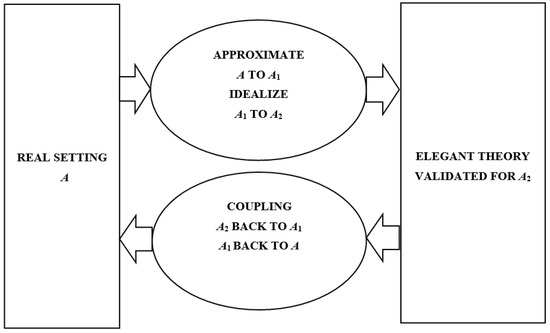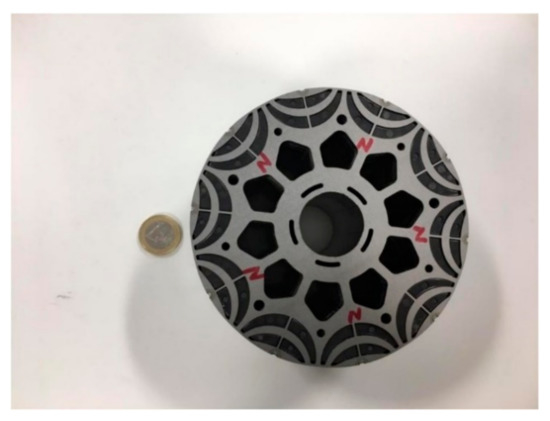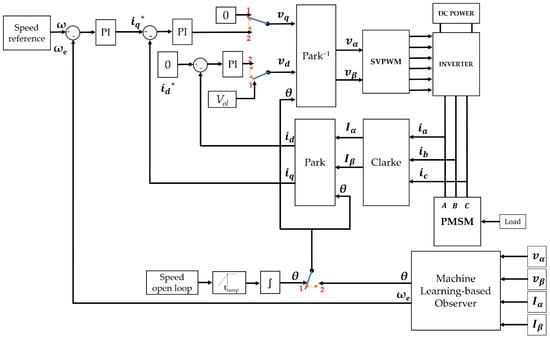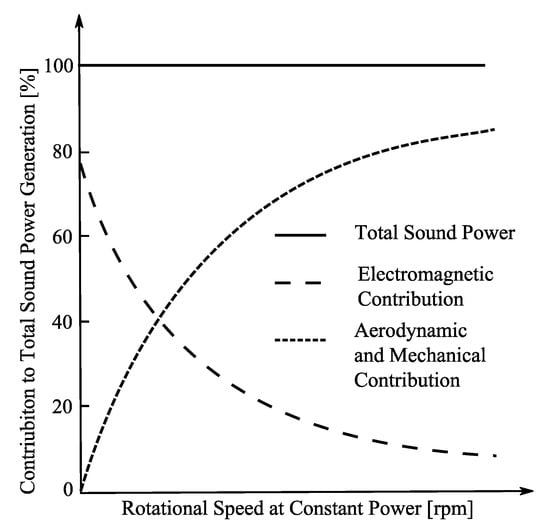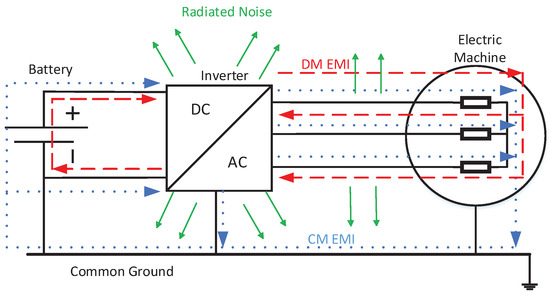Modeling, Design and Control of Electric Machines: Volume II
Share This Topical Collection
Editors
 Dr. Francisco Javier Poza Lobo
Dr. Francisco Javier Poza Lobo
 Dr. Francisco Javier Poza Lobo
Dr. Francisco Javier Poza Lobo
E-Mail
Website
Collection Editor
Faculty of Engineering, Mondragon Unibertsitatea, 20500 Arrasate-Mondragón, Spain
Interests: enhanced control machine drives; sensorless control; electric and thermal online estimators; advanced models for diagnosis; advanced testing; mode-based software development and validation; railway applications
Special Issues, Collections and Topics in MDPI journals
 Dr. Larralde Gaizka Almandoz
Dr. Larralde Gaizka Almandoz
 Dr. Larralde Gaizka Almandoz
Dr. Larralde Gaizka Almandoz
E-Mail
Website
Collection Editor
Faculty of Engineering, Mondragon Unibertsitatea, 20500 Arrasate-Mondragón, Spain
Interests: electric machine design for specific applications; electric machine design and control for new drives based on SiC and GaN semiconductors; electric machine design for manufacturing and maintenance; elevators and industrial application
Special Issues, Collections and Topics in MDPI journals
 Dr. Rosillo Gaizka Ugalde
Dr. Rosillo Gaizka Ugalde
 Dr. Rosillo Gaizka Ugalde
Dr. Rosillo Gaizka Ugalde
E-Mail
Website
Collection Editor
Faculty of Engineering, Mondragon Unibertsitatea, 20500 Arrasate-Mondragón, Spain
Interests: new topologies of machines; advanced modeling; electromagnetic materials; new numerical and analytical modeling techniques; optimization techniques; electric vehicles and aerospace applications
Special Issues, Collections and Topics in MDPI journals
 Dr. Christian Rivera
Dr. Christian Rivera
 Dr. Christian Rivera
Dr. Christian Rivera
E-Mail
Website
Collection Editor
Faculty of Engineering, Mondragon Unibertsitatea, 20500 Arrasate-Mondragón, Spain
Interests: electric machine design, modeling, and manufacturing; optimization methods; electromagnetic materials; systems engineering and knowledge-based engineering application in electric machines
Topical Collection Information
Dear Colleagues,
Electric machines (motors and generators) are key elements for the efficient and sustainable use of energy. The new market trends for the electrification of road vehicles as well as aircraft, the increase in energy efficiency, and the development of various sustainable energy sources require innovations in the design and control of electric machines. New magnetic materials, new drives with SiC and GaN semiconductors, and advanced multiphysics modeling and simulation techniques are some of the enabling technologies required to obtain high-performance, higher-reliability, and cost-effective solutions.
This Topical Collection focuses on innovations in the context of “Modeling, Design, and Control of Electric Machines”.
Topics of interest for this Topical Collection include but are not limited to:
- New topologies of machines;
- Electric machine design and control optimization for new drives based on SiC and GaN semiconductors;
- Electric machine optimization;
- Advanced modeling (electromagnetic, thermal, NVH, mechanical, EMC, insulation, etc.);
- Advanced models for diagnosis;
- Electromagnetic materials, iron losses, additional losses;
- System-level modeling, multidomain automatic analysis tools, co-simulations, etc.;
- New numerical and analytical modeling techniques;
- Optimization techniques;
- Advanced testing (multiphysics performances, standard tests, life accelerated testing, etc.);
- Electric machine design for control;
- Electric machine design for specific applications (electric vehicles, aerospace, wind energy, railway, etc.);
- Electric machine design for manufacturing (tolerances analysis, manufacturing processes, quality control, etc.);
- Electric machine design for maintenance (reliability analysis, robust design, fault modeling, etc.);
- Lifetime estimation, life cycle cost (LCC), life cycle assessment (LCA);
- Enhanced control schemes for AC and DC machine drives;
- New modulation schemes for AC and DC machine drives;
- Sensorless control for machine drives;
- Fault-tolerant control strategies for AC and DC machine drives;
- New adaption techniques to estimate state variables and parameters;
- Offline and online tuning for AC and DC machine drives;
- Online temperature estimators and derating functions (thermal models, electric resistance estimators, hybrid schemas, advanced strategies for dynamic machine derating, etc.);
- Control optimization according to HW constraints (low-cost sensors, computational load optimization, optimized switching frequency pattern, noise immunity, etc.);
- Control optimization for a reduced torque ripple or NVH levels (active compensation, optimal parametrization, etc.);
- Application-oriented drive controls (electric vehicles, aerospace, wind energy, railway, etc.);
- Model-based software development and validation for machine drives (MiL, SiL, PiL, HiL, automated code generation, etc.);
- V-model schemas for the development of electric machines and drives;
- Virtual modeling and validation of electric machines and drives.
Dr. Francisco Javier Poza Lobo
Dr. Larralde Gaizka Almandoz
Dr. Rosillo Gaizka Ugalde
Dr. Christian Rivera
Collection Editors
Manuscript Submission Information
Manuscripts should be submitted online at www.mdpi.com by registering and logging in to this website. Once you are registered, click here to go to the submission form. Manuscripts can be submitted until the deadline. All submissions that pass pre-check are peer-reviewed. Accepted papers will be published continuously in the journal (as soon as accepted) and will be listed together on the collection website. Research articles, review articles as well as short communications are invited. For planned papers, a title and short abstract (about 250 words) can be sent to the Editorial Office for assessment.
Submitted manuscripts should not have been published previously, nor be under consideration for publication elsewhere (except conference proceedings papers). All manuscripts are thoroughly refereed through a single-blind peer-review process. A guide for authors and other relevant information for submission of manuscripts is available on the Instructions for Authors page. Applied Sciences is an international peer-reviewed open access semimonthly journal published by MDPI.
Please visit the Instructions for Authors page before submitting a manuscript.
The Article Processing Charge (APC) for publication in this open access journal is 2400 CHF (Swiss Francs).
Submitted papers should be well formatted and use good English. Authors may use MDPI's
English editing service prior to publication or during author revisions.
Keywords
- electric machines
- motor drives
- multiphysics modeling
- design for manufacturing and maintenance
Related Special Issue
Published Papers (22 papers)
Open AccessArticle
PWM-Based Speed and Position Estimations for Permanent Magnet Synchronous Machines
by
Saleh B. Shlimet and Antonio Griffo
Cited by 1 | Viewed by 700
Abstract
A PWM-based rotor position and speed estimator is presented in this study. The method is based on the measurement of the current response to conventional space vector pulse width-modulated voltage (SV-PWM) for PMSM drive applications. Model reference adaptive system (MRAS) estimators are often
[...] Read more.
A PWM-based rotor position and speed estimator is presented in this study. The method is based on the measurement of the current response to conventional space vector pulse width-modulated voltage (SV-PWM) for PMSM drive applications. Model reference adaptive system (MRAS) estimators are often used for sensorless speed estimation. A MRAS typically uses two models: the reference model (voltage model) and the adaptive model (current model). The voltage model in flux-based MRAS uses the integration of stator voltages to calculate the stator flux. The pure integrator is usually replaced by a low-pass filter; however, this results in phase errors at low frequencies. The position is estimated using oversampling and averaging over a switching SV-PWM cycle, eliminating the need for integrators. Extensive experimental tests are presented to evaluate the performance of the PWM-based estimator. The results of the experiments demonstrate good performance at various speeds and under various load circumstances, in both motoring and regenerating modes. The proposed method also shows robustness to changes in motor parameters.
Full article
►▼
Show Figures
Open AccessReview
Review of Fast Computation Methods for Finite-State Predictive Control of Multi-Phase Drives
by
Esteban Marsal, Manuel R. Arahal, Manuel G. Satué and Manuel Perales
Cited by 1 | Viewed by 1235
Abstract
Optimizing the cost function in predictive control of multi-phase drives is computationally intensive. This poses a challenge since the required sampling period for drives falls within the microsecond range. Numerous methods have been proposed in the literature to address this computational demand. This
[...] Read more.
Optimizing the cost function in predictive control of multi-phase drives is computationally intensive. This poses a challenge since the required sampling period for drives falls within the microsecond range. Numerous methods have been proposed in the literature to address this computational demand. This paper reviews recent proposals for multi-phase drives of various kinds. A structured classification of the proposals is provided. Furthermore, an integrated framework is employed to cohesively present and connect previously unrelated methods. Key elements such as Allowed Control Set, inter-sample modulation, and weighting factor use are identified. New developments in multi-vector and single-vector approaches are discussed. Practical limitations for each approach are also considered.
Full article
►▼
Show Figures
Open AccessArticle
Optimization of an Asymmetric-Rotor Permanent Magnet-Assisted Synchronous Reluctance Motor for Improved Anti-Demagnetization Performance
by
Feng Xing, Jiajia Zhang, Feng Zuo and Yuge Gao
Cited by 3 | Viewed by 2265
Abstract
Permanent magnet-assisted synchronous reluctance motors (PMA-SynRMs) are widely used in various fields due to their significant advantages, including strong torque output, high efficiency, excellent speed regulation, and low cost. The PMA-SynRM with asymmetric-rotor structure has a weaker anti-demagnetization performance than the conventional PMA-SynRM
[...] Read more.
Permanent magnet-assisted synchronous reluctance motors (PMA-SynRMs) are widely used in various fields due to their significant advantages, including strong torque output, high efficiency, excellent speed regulation, and low cost. The PMA-SynRM with asymmetric-rotor structure has a weaker anti-demagnetization performance than the conventional PMA-SynRM due to its multi-layer and thin permanent magnets construction. According to the finite element (FEM) simulation analysis, the anti-demagnetization performance of the asymmetric-rotor PMA-SynRM can be improved by adding bypass magnetic bridges on the ribs of the flux barriers and by changing the positions of the permanent magnets. The rotor structure of the proposed model is globally optimized by combining the two methods. Anti-demagnetization performance is improved as much as possible under the premise of ensuring the torque performance of the basic model. After multi-objective optimization, there is almost no difference between the optimized model and the basic model in terms of no-load air-gap flux density, no-load Back-electromotive force (EMF), and average torque. The maximum demagnetization rate of the optimized model is reduced by 81.44% compared with the basic model, and the anti-demagnetization performance is significantly improved. At the same time, the torque ripple is also reduced by 44.14%, which is obviously reduced. Compared with the basic model, the optimized model has better stability and reliability.
Full article
►▼
Show Figures
Open AccessArticle
Improving the Dynamics of an Electrical Drive Using a Modified Controller Structure Accompanied by Delayed Inputs
by
Konrad Urbanski and Dariusz Janiszewski
Cited by 4 | Viewed by 1472
Abstract
This paper presents the operation of a modified speed controller with a standard PI/PID structure that includes the preprocessing of the controller’s input signal, focusing on the past behavior of control errors. The modification involves adding a delay line, with the outputs of
[...] Read more.
This paper presents the operation of a modified speed controller with a standard PI/PID structure that includes the preprocessing of the controller’s input signal, focusing on the past behavior of control errors. The modification involves adding a delay line, with the outputs of the individual line segments summed with a weighting method, as detailed in the paper. One of the significant advantages of this method is its use of a standard industrial controller structure, which makes it highly practical and easily implementable in existing systems. By relying on well-established control frameworks, this approach reduces the need for specialized hardware or complex modifications, allowing for smoother integration and lower implementation costs. The delay-based signal shaping shows excellent properties for the electric drive system powered by a hard-switching PWM converter. The set of weighted delays acts as a filter whose parameters are chosen using the quality function to test different configurations for optimal performance. When tested in a speed control system for a Permanent Magnet Synchronous Motor, the modifications improved the control quality index, indicating better performance and efficiency. Importantly, the system allows for reducing or eliminating the gain in the differentiating part of the controller, which decreases motor current chattering and noise. This paper includes an experimental verification of the proposed solution in a laboratory setting under semi-industrial conditions.
Full article
►▼
Show Figures
Open AccessArticle
Fault Diagnosis of Induction Motors under Limited Data for Across Loading by Residual VGG-Based Siamese Network
by
Hong-Chan Chang, Ren-Ge Liu, Chen-Cheng Li and Cheng-Chien Kuo
Viewed by 1877
Abstract
This study proposes an improved few-shot learning model of the Siamese network residual Visual Geometry Group (VGG). This model combined with time–frequency domain transformation techniques effectively enhances the performance of across-load fault diagnosis for induction motors with limited data conditions. The proposed residual
[...] Read more.
This study proposes an improved few-shot learning model of the Siamese network residual Visual Geometry Group (VGG). This model combined with time–frequency domain transformation techniques effectively enhances the performance of across-load fault diagnosis for induction motors with limited data conditions. The proposed residual VGG-based Siamese network consists of two primary components: the feature extraction network, which is the residual VGG, and the merged similarity layer. First, the residual VGG architecture utilizes residual learning to boost learning efficiency and mitigate the degradation problem typically associated with deep neural networks. The employment of smaller convolutional kernels substantially reduces the number of model parameters, expedites model convergence, and curtails overfitting. Second, the merged similarity layer incorporates multiple distance metrics for similarity measurement to enhance classification performance. For cross-domain fault diagnosis in induction motors, we developed experimental models representing four common types of faults. We measured the vibration signals from both healthy and faulty models under varying loads. We then applied the proposed model to evaluate and compare its effectiveness in cross-domain fault diagnosis against conventional AI models. Experimental results indicate that when the imbalance ratio reached 20:1, the average accuracy of the proposed residual VGG-based Siamese network for fault diagnosis across different loads was 98%, closely matching the accuracy of balanced and sufficient datasets, and significantly surpassing the diagnostic performance of other models.
Full article
►▼
Show Figures
Open AccessArticle
Objective Sliding Mode Control for the Flotation Motor Replacement Process Based on a Stepwise Stochastic Configuration Network
by
Yunze Tang, Jinghui Qiao and Ningkang Xiong
Cited by 1 | Viewed by 1170
Abstract
Flotation motors face constant vibration and friction in the working process, resulting in wear and often need to be replaced, reducing production efficiency. In order to ensure the efficient operation of flotation equipment, we designed a manipulator to assist the work. The manipulator
[...] Read more.
Flotation motors face constant vibration and friction in the working process, resulting in wear and often need to be replaced, reducing production efficiency. In order to ensure the efficient operation of flotation equipment, we designed a manipulator to assist the work. The manipulator model is difficult to be accurate, and the diversity of external information brings great challenges to the precise control of the manipulator. Therefore, an Objective Sliding Mode Control (OSMC) strategy combined with Stepwise Stochastic Configuration Networks (SSCNs) is developed to solve the above problems while reducing the oscillation of the system. The SSCN is distinguished by its innovative node selection mechanism for the hidden layer, which operates in two distinct phases: initially, ‘single time’, where weights and biases are randomly assigned through a uniform distribution, and subsequently, ‘double time’, where these parameters are adjusted based on a normal distribution centered around the values selected in the first phase. This approach enhances the system’s robustness by incorporating a disturbance observer based on SSCN, designed to accurately estimate and compensate for system uncertainties. The simulation model realistically integrates these uncertainties and disturbances, demonstrating the effectiveness of the proposed OSMC in satisfying the stringent control requirements of mechanical arms under uncertain conditions. This advancement offers a promising new method for the precise control of robotic systems in challenging environments.
Full article
►▼
Show Figures
Open AccessArticle
An Audio-Based Motor-Fault Diagnosis System with SOM-LSTM
by
Chia-Sheng Tu, Chieh-Kai Chiu and Ming-Tang Tsai
Cited by 5 | Viewed by 2083
Abstract
This paper combines self-organizing mapping (SOM) and a long short-term memory network (SOM-LSTM) to construct an audio-based motor-fault diagnosis system for identifying the operating states of a rotary motor. This paper first uses an audio signal collector to measure the motor sound signal
[...] Read more.
This paper combines self-organizing mapping (SOM) and a long short-term memory network (SOM-LSTM) to construct an audio-based motor-fault diagnosis system for identifying the operating states of a rotary motor. This paper first uses an audio signal collector to measure the motor sound signal data, uses fast Fourier transform (FFT) to convert the actual measured sound–time-domain signal into a frequency-domain signal, and normalizes and calibrates the frequency-domain signal to ensure the consistency and accuracy of the signal. Secondly, the SOM is used to further analyze the characterized frequency-domain waveforms in order to reveal the intrinsic structure and pattern of the data. The LSTM network is used to process the secondary data generated via SOM. Dimensional data aggregation and the prediction of sequence data in long-term dependencies accurately identify different operating states and possible abnormal patterns. This paper also uses the experimental design of the Taguchi method to optimize the parameters of SOM-LSTM in order to increase the execution efficiency of fault diagnosis. Finally, the fault diagnosis system is applied to the real-time monitoring of the motor operation, the work of identifying the motor-fault type is performed, and tests under different loads and environments are attempted to evaluate its feasibility. The completion of this paper provides a diagnostic strategy that can be followed when it comes to motor faults. Through this fault diagnosis system, abnormal conditions in motor equipment can be detected, which can help with preventive maintenance, make work more efficient and save a lot of time and costs, and improve the industry’s ability to monitor motor operation information.
Full article
►▼
Show Figures
Open AccessArticle
Condition Monitoring of a Cartesian Robot with a Mechanically Damaged Gear to Create a Fuzzy Logic Control and Diagnosis Algorithm
by
Siarhei Autsou, Karolina Kudelina, Toomas Vaimann, Anton Rassõlkin and Ants Kallaste
Cited by 1 | Viewed by 2280
Abstract
The detection of faults during an operational process constitutes a crucial objective within the framework of developing a control system to monitor the structure of industrial mechanisms. Even minor faults can give rise to significant consequences that require swift resolution. This research investigates
[...] Read more.
The detection of faults during an operational process constitutes a crucial objective within the framework of developing a control system to monitor the structure of industrial mechanisms. Even minor faults can give rise to significant consequences that require swift resolution. This research investigates the impact of overtension in the tooth belt transmission and heating of the screw transmission worm on the vibration signals in a robotic system. Utilizing FFT techniques, distinct frequency characteristics associated with different faults were identified. Overtension in the tooth belt transmission caused localized oscillations, addressed by adjusting the acceleration and deceleration speeds. Heating of the screw transmission worm led to widespread disturbances affecting servo stress and positioning accuracy. A fuzzy logic algorithm based on spectral analysis was proposed for adaptive control, considering the vibration’s frequency and amplitude. The simulation results demonstrated effective damage mitigation, reducing wear on the mechanical parts. The diagnostic approach, relying on limited data, emphasized the feasibility of identifying transmission damage, thereby minimizing maintenance costs. This research contributes a comprehensive and adaptive solution for robotic system diagnostics and control, with the proposed fuzzy logic algorithm showing promise for efficient signal processing and machine learning applications.
Full article
►▼
Show Figures
Open AccessArticle
A Novel Hybrid Approach to the Diagnosis of Simultaneous Imbalance and Shaft Bowing Faults in a Jeffcott Rotor-Bearing System
by
Shyh-Chin Huang, Sherina Octaviani and Mohammad Najibullah
Cited by 7 | Viewed by 2493
Abstract
Ensuring optimal performance and reliability in rotor-bearing systems is crucial for industrial applications. Imbalances and shaft bowing in these systems can lead to decreased efficiency and increased vibrations. The early detection and mitigation of a rotor’s faults are essential, and model-based fault identification
[...] Read more.
Ensuring optimal performance and reliability in rotor-bearing systems is crucial for industrial applications. Imbalances and shaft bowing in these systems can lead to decreased efficiency and increased vibrations. The early detection and mitigation of a rotor’s faults are essential, and model-based fault identification has gained much attention in the manufacturing industry over the years. Over the past two decades, however, the development of fault diagnosis rules with data-driven and artificial intelligence (AI) methods has become a trend, and in the foreseeable future the combination of AI with big data will become mainstream. Nevertheless, the critical role of rotating machinery in manufacturing introduces a challenge, as often insufficient fault data are available. This limitation renders the establishment of diagnostic rules using data-driven methods and AI technologies impractical. In light of these challenges, this study proposes a novel hybrid approach that combines a physical model with machine learning (ML) techniques for the diagnosis of multi-faults (imbalances and shaft bowing are demonstrated) in a Jeffcott rotor. To overcome the lack of real-world labeled fault datasets, a physics-based Jeffcott rotor model is first derived and then used to generate abundant fault datasets for ML. Subsequently, simulated data are employed for the training of an artificial neural network (ANN), enabling the network to learn from and analyze the vast array of generated data. The results prove that a well-trained feed-forward neural network (FNN) can accurately isolate and diagnose imbalance and shaft bowing faults using the simulated and real data from the Jeffcott rotor experiment. These physics-based and ML approaches prove effective particularly for multi-faults, offering new possibilities for advanced rotor system monitoring and maintenance strategies in industrial applications.
Full article
►▼
Show Figures
Open AccessReview
Principles and Methods of Servomotor Control: Comparative Analysis and Applications
by
Siarhei Autsou, Karolina Kudelina, Toomas Vaimann, Anton Rassõlkin and Ants Kallaste
Cited by 12 | Viewed by 12248
Abstract
Servomotors have found widespread application in many areas, such as manufacturing, robotics, automation, and others. Thus, the control of servomotors is divided into various principles and methods, leading to a high diversity of control systems. This article provides an overview of types of
[...] Read more.
Servomotors have found widespread application in many areas, such as manufacturing, robotics, automation, and others. Thus, the control of servomotors is divided into various principles and methods, leading to a high diversity of control systems. This article provides an overview of types of servomotors and their basic principles and control methods. Principles such as digital signal processing, feedback control principle, field-oriented control, and integration with Industry 4.0 are discussed. Based on these control principles, the article presents popular control methods: PWM control, current control, two-loop control, fuzzy-logic control, and programmable control. The article concludes with a comparison of the presented methods on several criteria, and as an example, it includes the results of modeling a servomotor using the fuzzy-logic control method.
Full article
►▼
Show Figures
Open AccessArticle
A New Windage Loss Model for S-CO2 Turbomachinery Design
by
Dokyu Kim, Yongju Jeong, In Woo Son and Jeong Ik Lee
Cited by 5 | Viewed by 2161
Abstract
A supercritical CO
2 (S-CO
2) Brayton cycle is a compact and simple power conversion system with competitive efficiency. However, the strong real gas effects of S-CO
2 pose challenges to the design of a cycle and its components. In particular, designing
[...] Read more.
A supercritical CO
2 (S-CO
2) Brayton cycle is a compact and simple power conversion system with competitive efficiency. However, the strong real gas effects of S-CO
2 pose challenges to the design of a cycle and its components. In particular, designing turbomachinery for expansion and compression processes has to accurately reflect real gas effects. Windage loss is one of the major losses that affects the motor load and heat generation in turbomachinery. The windage loss has a substantial impact on the overall turbomachinery efficiency especially in an S-CO
2 power cycle since the windage loss is reported to be the dominant loss mechanism due to high fluid density and high rotational speed. Therefore, an accurate windage loss model reflecting the real gas effect of S-CO
2 is essential to obtaining an optimal design of turbomachinery as well as maximizing the performance of an S-CO
2 power cycle. In this study, existing windage loss models are first compared to the recently obtained data from S-CO
2 windage loss experiments conducted by the KAIST research team under S-CO
2 conditions in order to understand the turbomachinery performance uncertainty caused by the windage loss models. This is followed by proposing a new windage model which explains data better.
Full article
►▼
Show Figures
Open AccessFeature PaperArticle
Novel Mechanical Flux-Weakening Design of a Spoke-Type Permanent Magnet Generator for Stand-Alone Power Supply
by
Mingyuan Jiang and Shuangxia Niu
Cited by 10 | Viewed by 3435
Abstract
In this paper, a novel mechanical flux-weakening design of a spoke-type permanent magnet generator for a stand-alone power supply is proposed. By controlling the position of the adjustable modulator ring mechanically, the total induced voltage, i.e., the amplitude of the back EMF vector
[...] Read more.
In this paper, a novel mechanical flux-weakening design of a spoke-type permanent magnet generator for a stand-alone power supply is proposed. By controlling the position of the adjustable modulator ring mechanically, the total induced voltage, i.e., the amplitude of the back EMF vector sum can be effectively adjusted accordingly by the modulation effect. Consequently, the variable-speed constant-amplitude voltage control (VSCAVC) with a large speed range can be achieved. Compared to the electrical flux-weakening method, the mechanical flux-weakening method is easier to operate without the risk of PM demagnetization. The analytical model is presented, and the operation principles are illustrated. To analyze the performance of different combinations of stator/rotor pole pairs, four cases are optimized and analyzed using the finite element method for comparison. The characteristics of VSCAVC are analyzed.
Full article
►▼
Show Figures
Open AccessArticle
Study of Partial Discharge Inception Voltage in Inverter Fed Electric Motor Insulation Systems
by
Leire Elorza Azpiazu, Gaizka Almandoz, Aritz Egea, Gaizka Ugalde and Xabier Badiola
Cited by 13 | Viewed by 7968
Abstract
This article performs a thorough evaluation of different environmental and electrical waveform characteristics affecting PDIV on electric motor winding insulation. Temperature received special attention, as it clearly affects PDIV. Additionally, the PDIV models found in the literature were reviewed. Considering that the winding
[...] Read more.
This article performs a thorough evaluation of different environmental and electrical waveform characteristics affecting PDIV on electric motor winding insulation. Temperature received special attention, as it clearly affects PDIV. Additionally, the PDIV models found in the literature were reviewed. Considering that the winding of the electric motor can reach 180
C during operation, the experiments were performed at high temperatures in order to evaluate the performance of PDIV models. Several models were studied regarding their accuracy at high temperatures and the advantages and disadvantages of each one were identified. Based on the analysis, a simple analytical model to estimate the PDIV of twisted pairs depending on the temperature was proposed. All in all, the proposed model was the best compromise between computational requirements and PDIV estimation accuracy at high temperatures. Finally, future lines were identified. Further studies are necessary that consider the humidity, rise time, and pulse width effect on PDIV. Moreover, new models regarding both, environmental and waveform characteristics are necessary to accurately estimate PDIV. Extended volume–time theory seems to be a good basis for that.
Full article
►▼
Show Figures
Open AccessArticle
Self-Sensing Six-Phase PMSM Drive Based on Back-EMF Measurement
by
Marek Furmanik, Pavol Makys and Pavol Rafajdus
Cited by 2 | Viewed by 3625
Abstract
This paper presents a novel procedure for the emergency sensorless operation of a six-phase electric drive. More degrees of freedom provided by multiphase technology have been utilized to determine the rotor flux position. The proposed technique is based on the direct measurement of
[...] Read more.
This paper presents a novel procedure for the emergency sensorless operation of a six-phase electric drive. More degrees of freedom provided by multiphase technology have been utilized to determine the rotor flux position. The proposed technique is based on the direct measurement of the back EMF generated on a disconnected three-phase winding of a six-phase permanent-magnet synchronous machine (PMSM). The method is suitable for the emergency operation of an electric drive in the case of speed/position sensor failure. The proposed solution has been verified utilizing a six-phase permanent-magnet synchronous machine with a displacement of 30° between two three-phase sets of the stator winding and a power of 1 kW.
Full article
►▼
Show Figures
Open AccessArticle
A Novel Constant Power Factor Loop for Stable V/f Control of PMSM in Comparison against Sensorless FOC with Luenberger-Type Back-EMF Observer Verified by Experiments
by
Michal Vidlak, Pavol Makys and Lukas Gorel
Cited by 12 | Viewed by 5073
Abstract
This paper proposes a novel constant power factor loop in the
V/
f control strategy with stabilization for a permanent magnet synchronous motor (PMSM). The advantage of such an algorithm is the independence of the machine parameters, which vary under different operational
[...] Read more.
This paper proposes a novel constant power factor loop in the
V/
f control strategy with stabilization for a permanent magnet synchronous motor (PMSM). The advantage of such an algorithm is the independence of the machine parameters, which vary under different operational conditions, e.g., with temperature, magnetic core saturation, and skin-effect. Furthermore, it is a low-cost and simple-to-implement sensorless solution. The proposed strategy is compared against traditional sensorless FOC with a Luenberger-type back-electromotive force (EMF) observer, which can be designed based on the machine model. The output of this kind of observer is typically an error signal, which can be specified for position deviation, requiring phase-locked loop (PLL) algorithm implementation. Employing PLL, a rotor speed and position can be estimated from such an error. Therefore, it is a complex sensorless technique with high-performance microcontroller unit (MCU) requirements. Both strategies are deeply analyzed, mathematically described, and compared within the paper. At the end of the paper, these sensorless strategies are supported by experimental verification with a traction PMSM designed for golf cart applications, and the pros and cons of both techniques are discussed.
Full article
►▼
Show Figures
Open AccessArticle
Double Dead-Time Signal Injection Strategy for Stator Resistance Estimation of Induction Machines
by
Urtzi Lazcano, Javier Poza, Fernando Garramiola, Christian A. Rivera and Ion Iturbe
Cited by 2 | Viewed by 1992
Abstract
A sensorless online temperature estimator is presented in this paper, which estimates the temperature using a novel signal injection strategy. This allows to eliminate the temperature sensors in the machine, as well as their faults, increasing the system reliability. A double dead-time DC
[...] Read more.
A sensorless online temperature estimator is presented in this paper, which estimates the temperature using a novel signal injection strategy. This allows to eliminate the temperature sensors in the machine, as well as their faults, increasing the system reliability. A double dead-time DC signal is injected in the machine, adding a controlled offset in the control drive through the inverter. The proposed strategy eliminates the effect of the dead-time in the injected signal, which is an important drawback in DC injection strategies for resistance estimation. Furthermore, additional hardware is not needed. The strategy has been implemented in an inverter-fed railway traction induction machine. The proposed algorithm has been validated in a real test-bench.
Full article
►▼
Show Figures
Open AccessArticle
Comparative Study between Cost Functions of Genetic Algorithm Used in Direct Torque Control of a Doubly Fed Induction Motor
by
Said Mahfoud, Aziz Derouich, Najib El Ouanjli, Mahmoud A. Mossa, Saad Motahhir, Mohammed El Mahfoud and Ameena Saad Al-Sumaiti
Cited by 28 | Viewed by 3352
Abstract
The proportional integral derivative (PID) regulator is the most often utilized controller in the industry due to its benefits. It permits linear systems to operate well, but it causes non-linear behavior when the system is subjected to physical variable circumstances, such as temperature
[...] Read more.
The proportional integral derivative (PID) regulator is the most often utilized controller in the industry due to its benefits. It permits linear systems to operate well, but it causes non-linear behavior when the system is subjected to physical variable circumstances, such as temperature and saturation. A PID controller is insufficient in this case. The proportional integral (PI) controller inside the direct torque control (DTC) regulates the speed of the doubly fed induction motor (DFIM). However, the system consisting of DTC and a DFIM is non-linear due to its multivariable parameters, resulting in undesirable overshoots and torque ripples. As a result, several approaches are used to improve the DTC’s robustness. The integration of optimization methods was discovered. These algorithms are used to provide gains that are near-optimal, bringing the system closer to its ideal state in order to accomplish effective torque and speed control. This article focuses on a comparative study of the different objective functions, in order to have very effective DFIM behaviors, by using a genetic algorithm. Agenetic algorithm (GA) is presented in this study for adjusting the optimal PID parameters in DTC to control the DFIM, utilizing objective functions such as integral square error (ISE), integral time absolute error (ITAE), and integral absolute error (IAE), employed independently and in a weighted combination. This article offers a comparison of several objective functions inside the DTC and DFIM, which will be utilized in future research into another optimization technique for this control type. Matlab/Simulink was used to construct the novel hybrid structure based on the GA-DTC intelligent control. The simulation results demonstrated the efficiency of the GA-DTC intelligent control with a weighted combination, providing acceptable performance with respect to rapidity, precision, and stability, as well as an improvement of 14.53% in the rejection time reduction, fewer torque ripples and flux ripples on the stator and rotor by 27.88%, 15.13%, and 4.375%, respectively, and respective increases of 32.45% and 71% in the THDs of the stator and rotor currents, which are acceptable.
Full article
►▼
Show Figures
Open AccessReview
Coupled Models in Electromagnetic and Energy Conversion Systems from Smart Theories Paradigm to That of Complex Events: A Review
by
Adel Razek
Cited by 5 | Viewed by 2484
Abstract
In this article, we evaluate the modeling of a real operation of a real system using the corresponding adequate theory. We show that the smart theories often used do not directly correspond to reality because these theories have been established in idealized frameworks.
[...] Read more.
In this article, we evaluate the modeling of a real operation of a real system using the corresponding adequate theory. We show that the smart theories often used do not directly correspond to reality because these theories have been established in idealized frameworks. The need to adapt such frames to real landscape situations necessitates modifying the models used. This can be achieved by taking into account the different existing physical phenomena, which are normally overlooked in smart idealized models, in a revised coupled model. This contribution aims to analyze and illustrate the relationship between smart theories and coupled realistic models through a literature review. The strategy for constructing such models is discussed and highlighted. The understanding of this approach is illustrated by an application to the case of electromagnetic and energy conversion systems. In these systems, intelligent energy management, conversion and control involve the use of an accurate realistic coupled model in system design, optimization and control. It is a question of coupling and solving equations representing these systems by taking into account the real phenomena involved, which are electrical, magnetic, mechanical, thermal and material. The obvious advantage of using such realistic models in computer-aided design and optimization tools is illustrated. Moreover, the interest of using such models in the supervision of systems is assessed. These demonstrations are supported by a review of examples of work carried out in the field.
Full article
►▼
Show Figures
Open AccessArticle
Less Rare-Earth Electromagnetic Design for a High-Performance Permanent Magnet Motor
by
Christian A. Rivera, Gaizka Ugalde, Javier Poza, Fernando Garramiola and Xabier Badiola
Cited by 4 | Viewed by 10118
Abstract
This paper presents an electromagnetic design alternative using the so-called banana-shaped magnets, achieving magnet weight reduction of 21.82% for the same performance as the baseline motor in the case study. Typically, parallel magnetization is used in this topology because it provides the manufacturing
[...] Read more.
This paper presents an electromagnetic design alternative using the so-called banana-shaped magnets, achieving magnet weight reduction of 21.82% for the same performance as the baseline motor in the case study. Typically, parallel magnetization is used in this topology because it provides the manufacturing advantage of not building a specific magnetizing device required to achieve radial magnetization. Therefore, as its main contribution, this paper proposes using tilted magnetization, demonstrating that the performance is better than the conventional way of applying parallel magnetization in banana-shaped motors but still using parallel magnetization. Because of the performance improvement for the same motor structure, magnet weight reduction is possible for a new design with the same performance as the baseline motor. In addition, this paper presents the workflow followed to obtain the less rare-earth design motor candidate using tilted magnetization.
Full article
►▼
Show Figures
Open AccessArticle
Design and Implementation of a Machine-Learning Observer for Sensorless PMSM Drive Control
by
Dwi Sudarno Putra, Seng-Chi Chen, Hoai-Hung Khong and Fred Cheng
Cited by 18 | Viewed by 6353
Abstract
Information about rotor positions is critical when controlling a permanent-magnet synchronous motor (PMSM). This information can be gathered using a sensor or through an estimation without using a sensor. This article discusses a machine learning technique for estimating rotor positions. The proposed machine
[...] Read more.
Information about rotor positions is critical when controlling a permanent-magnet synchronous motor (PMSM). This information can be gathered using a sensor or through an estimation without using a sensor. This article discusses a machine learning technique for estimating rotor positions. The proposed machine learning observer was constructed using a modified Elman neural network as the main algorithm. The network was trained offline with training data obtained from PMSM field-oriented control simulations and was tested using a validation data set. The PMSM control simulation results revealed that the rotor position estimated through machine learning was comparable with the simulated rotor position; the average error was 0.0127 per unit position. Furthermore, the machine learning model was implemented in an experimental PMSM-control hardware platform. Both the simulation and experimental results indicate that the proposed machine learning observer has an acceptable performance.
Full article
►▼
Show Figures
Open AccessArticle
Analytical Model to Calculate Radial Forces in Permanent-Magnet Synchronous Machines
by
Iratxo Gómez, Gustavo García, Alex McCloskey and Gaizka Almandoz
Cited by 4 | Viewed by 4001
Abstract
There are three principal sources of noise and vibration in electrical machines: electromagnetic sources, mechanical sources, and aerodynamic sources. Nowadays, one of the major advantages of permanent-magnet synchronous machines is their torque density. This density is achieved through a high magnetic flux density
[...] Read more.
There are three principal sources of noise and vibration in electrical machines: electromagnetic sources, mechanical sources, and aerodynamic sources. Nowadays, one of the major advantages of permanent-magnet synchronous machines is their torque density. This density is achieved through a high magnetic flux density in the air gap, which is achieved through hard magnets. Unfortunately, in these machines, electromagnetic forces have been identified as the main source of vibration and noise, and high magnetic flux densities make these vibrations and noises more significant. With the aim of better understanding the relationship between electromagnetic forces and design variables, this article, which is the continuation of previous work, firstly describes a study of the sources of magnetic forces in permanent-magnet synchronous machines. Subsequently, an analytical model for the computation of the radial forces originating from electromagnetic sources in permanent-magnet synchronous machines is stated. This model analyzes the forces on both the rotor surface and the base of the stator tooth. The analytical results were corroborated through simulations using the finite element method (FEM) and also by experimental tests performed over two prototypes. The results achieved by the analytical model show good agreement with both FEM results and experimental measurements.
Full article
►▼
Show Figures
Open AccessReview
Analysis of Permanent Magnet Motors in High Frequency—A Review
by
Yerai Moreno, Gaizka Almandoz, Aritz Egea, Beñat Arribas and Ander Urdangarin
Cited by 31 | Viewed by 8401
Abstract
Electric drives consume a great amount of the world’s energy, and it will keep increasing due to the electromobility trend. Thus, the efficiency of electric drives must be improved to reach the desired sustainability goal. The Silicon Carbide devices contribute to this objective
[...] Read more.
Electric drives consume a great amount of the world’s energy, and it will keep increasing due to the electromobility trend. Thus, the efficiency of electric drives must be improved to reach the desired sustainability goal. The Silicon Carbide devices contribute to this objective due to their high working frequency and lower switching losses. However, working at higher frequencies may bring serious Electromagnetic Compatibility (EMC) problems, as well as insulation stress and higher bearing currents. Hence, it is important to have an electrical machine electrical equivalent circuit model to predict the electromagnetic interference levels. This review summarizes the current state of the art in electrical machine modeling and analysis in high frequency. The main analysis tools as Finite Element Methods, analytic and measurement-based tools are compared in their application on high-frequency electrical machine analysis. Then, different machine high-frequency models are reported, detailing their individual features. Additionally, the influence of the machine design parameters in EMC behavior is outlined for future analysis. All in all, Finite Element analysis is the most accurate tool for high-frequency analysis, provided that mesh size is thinner than the skin depth. It is also concluded that the winding placement is an essential parameter to define the high-frequency behavior of the machine.
Full article
►▼
Show Figures













